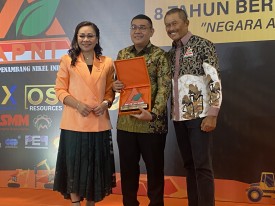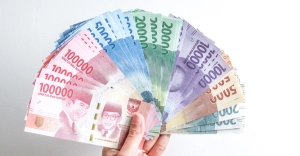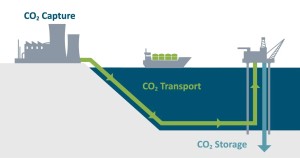Aspermigas encourages collaboration to eradicate illegal oil drilling
The Association of Indonesian Oil and Gas Companies (Aspermigas) assesses that the energy self-sufficiency target set by President Prabowo Subianto will be difficult to achieve if illegal drilling is still rampant.
The association says this illegal activity not only costs the state tens of trillions of rupiah per year, but also triggers environmental damage, loss of life, and reduces the attractiveness of investment in the energy sector.
Aspermigas has, therefore, initiated strategic measures to eradicate illegal drilling, among others a plan to hold a cross-sector meeting in January 2025.
"This is not a problem that can be solved by a single party. We need the involvement of all elements, from the government to the community," Chairman of Aspermigas, Mustiko Saleh, told Indonesia Business Post on Thursday, November 21, 2024.
Aspermigas had earlier proposed the formation of a special body, involving personnel of the Ministry of Law, the National Police, the Indonesian Military (TNI), the Corruption Eradication Commission (KPK), the Ministry of Energy and Mineral Resources (ESDM), and the Upstream Oil and Gas Regulatory Task Forces (SKK Migas), which would report directly to the President.
"Cross-agency coordination allows for handling from upstream to downstream, starting from field actors to the large networks behind them," Mustiko said.
Law enforcement is also a priority, including severe penalties for perpetrators, financiers, and parties who protect these illegal activities. "We must be firm so that this problem does not continue to recur," he added.
In addition, Aspermigas emphasized the importance of economic empowerment for communities around illegal drilling sites. Head of Aspermigas’ Investment Committee, Moshe Rizal, proposed a skills training program and job creation as a long-term solution.
"Decent job alternatives can help people escape the trap of illegal drilling permanently," he said.
Utilization of modern technology, such as drones with special sensors, is also an important part of Aspermigas' strategy. This technology allows for real-time monitoring of illegal drilling activities, especially in remote areas.
"With technology, we can intervene more quickly and efficiently," Moshe said.
In addition, Aspermigas also plans to educate communities around drilling sites about the dangers of this illegal activity and how to report suspicious activities.
"The community is the most affected party, so their role is very important in supervision," Moshe cited.
Policy support
Aspermigas hopes that the government will provide more supportive policy support to eradicate illegal drilling, such as incentives for companies involved in monitoring and restoring affected areas.
"With the right policies, we can motivate more companies to play an active role," Mustiko said.
The meeting in January 2025 is expected to be the first step towards stronger synergy between all parties.
"If we can work together, I am sure we can overcome this problem and protect the future of our oil and gas industry," Mustiko concluded.
Already have an account? Sign In
-
Start reading
Freemium
-
Monthly Subscription
30% OFF$26.03
$37.19/MonthCancel anytime
This offer is open to all new subscribers!
Subscribe now -
Yearly Subscription
33% OFF$228.13
$340.5/YearCancel anytime
This offer is open to all new subscribers!
Subscribe now






